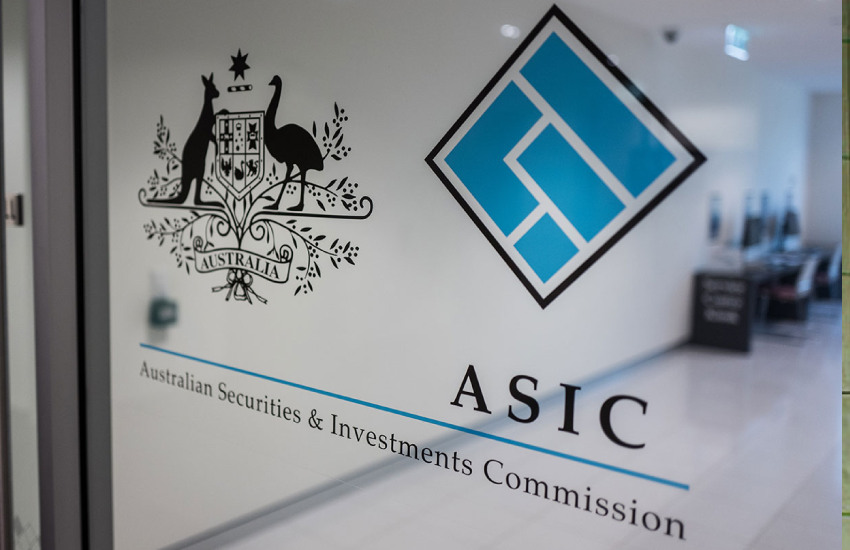ASIC floats LRBA ban, SMSF advice policy changes
In light of its latest report into SMSF advice, ASIC has floated to government some fresh policies to address poor consumer outcomes, but one expert is concerned it will only result in more “tick-a-box” rules for SMSFs.
In response to questions received on notice from the Parliamentary Joint Committee on Corporations and Financial Services, ASIC said it may be worth adding additional requirements for the establishment of SMSFs.
ASIC was asked by the PJC what ASIC reports 575 and 576 say about SMSFs, and what range of policy solutions should be considered in terms of member education, financial advice, requirements when setting up SMSFs and compliance.
Both reports were released in June this year and highlight that many SMSF members lack a basic understanding of their SMSF and their legal obligations, said ASIC.
Report 575 found that in ten per cent of the files reviewed the client would be significantly worse off following the advice.
One of the policies that could be introduced to improve outcomes for members, ASIC said, is extending the proposed design and distribution obligations regime to the establishment of SMSFs.
“This could involve imposing an obligation on SMSF promoters to consider the type of consumer whose needs would be addressed by establishing the SMSF and the channel best suited to distributing the SMSF as a product class,” ASIC said.
It also said the “consideration could be given to prohibiting limited recourse borrowing arrangements (LRBAs) and mandating a minimum SMSF balance”.
“We note the Council of Financial Regulators is currently considering LRBAs and is due to report to government by the end of this year.”
Consumers could also be required to undertake SMSF trustee education prior to setting up an SMSF.
“At the moment training is available but it is not compulsory,” it said.
ASIC noted that the new training and education standards to be set by the Financial Adviser Standards and Ethics Authority (FASEA) should improve the quality of financial advice provided to Australian consumers.
“ASIC has suggested that it might be appropriate to require specialist training for persons providing advice to set up an SMSF,” it stated in its response.
As part of its own compliance activities, ASIC said it will continue its focus on poor quality SMSF advice and investigate a number of SMSF one-stop-shops with a view to taking enforcement action.
“ASIC is also continuing to take enforcement action in relation to misleading and deceptive conduct in relation to SMSFs,” it said.
Thomson Reuters senior tax writer Stuart Jones said while creating more “tick-a-box rules” for SMSF setups and investments may make it easier for the regulators to police the industry, it won’t necessarily improve member outcomes.
“The royal commission showed that the worst cases of inappropriate LRBAs were driven by advisers who were motivated to package expensive insurance add-ons to generate commissions, rather than the strict rules that allow SMSFs to borrow,” said Mr Jones.
He also noted that while ASIC is right to be concerned about some SMSFs investing in a single asset class, business real property is still appropriate for some SMSFs where the members truly understand the asset and its risks.
“The issue is more about ensuring that the fund’s investment strategy has regard to the additional risks for the fund,” he said.
“Given the reduced contribution caps and account balance limits, LRBAs remain relevant for SMSFs looking to purchase appropriate high-value growth assets.”
Rather than banning LRBAs for all SMSFs, Mr Jones said, the additional compliance rules and risks associated with an LRBA can be addressed via the investment strategy process.
“SMSF trustees who are guided through this process and plan for the additional risks over the life of an investment are likely to be much better placed to achieve their retirement savings objectives.”
Mr Jones previously flagged concerns about a potential LRBA ban following some of the “horror stories” that emerged from the royal commission.
“The problems identified by the royal commission around borrowings by SMSFs have largely revolved around inappropriate financial advice rather than the actual rules that allow SMSFs to borrow under strict conditions,” he said.
“The superannuation industry will be hoping that the government does not overreact and throw the baby out with the bath water in response to these inquiries.”

Miranda Brownlee
Miranda Brownlee is the deputy editor of SMSF Adviser, which is the leading source of news, strategy and educational content for professionals working in the SMSF sector.
Since joining the team in 2014, Miranda has been responsible for breaking some of the biggest superannuation stories in Australia, and has reported extensively on technical strategy and legislative updates.
Miranda also has broad business and financial services reporting experience, having written for titles including Investor Daily, ifa and Accountants Daily.








